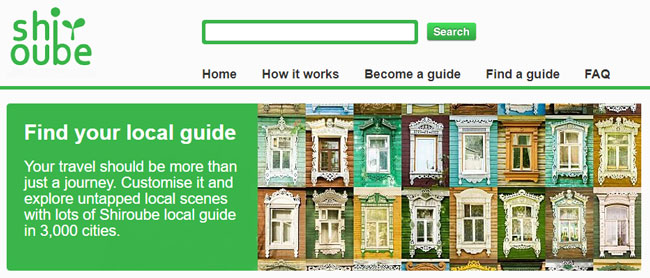In the past, when you looked for side hustles, you’d have to take in odd jobs like babysitting, car washing, newspaper delivery, lifeguarding, tutoring, shoveling snow, and a whole lot more.
Today, the internet has opened up a ton of side cash generating jobs – from those you can complete in under an hour (like answering surveys), to something a bit more complicated that requires advanced skills (like website development).
If you have some free time, you can make sure you have fast cash for an emergency expense that’s beyond your budget, or stow away for a rainy day.
Here are 100 easy ways to earn side cash without the need for a second full-time job.
Quick Online Tasks
If you’re constantly on the internet and you have a few minutes to spare every so often, there are quick and easy ways to make money with side hustles that won’t take too much of your time.

1. Answer short surveys
Third-party companies pay these survey companies to find out what consumers think about their products or services. Most get-paid-to-take-survey gigs let you earn points for every survey completed.
You can then choose to redeem these points for e-certificates, vouchers, gift cards, or real cash into your PayPal or bank account.
Tons of survey sites exist, but only a few legit survey sites are known to consistently pay its users.
2. Listen to music online
Listening to music seems too mundane to ever earn money from.
But there are a few ways to make money from this.
You can check out new music and earn points by rating and giving feedback on the artists’ work, or listen to Internet radio and get paid to subscribe or listen to ads, or let market research companies know what type of music you like listening to.
You’ll mostly earn cents per listened song, but this can add up quickly if you’re on the website for an entire day.
Here are just some of the ways you can get paid to listen to music.
3. Perform micro jobs at Clickworker
There’s no advanced skill needed for becoming a pro at Clickworker.com.
You have the potential to earn $5 to $20 per hour on easy tasks, but the competition is fierce and task availability may be few and far between.
4. Perform data mining or research for Microworkers
The quick jobs that Microworkers offer are more complex than surveys and filling out CAPTCHA forms. You’ll need a bit of internet marketing knowledge to perform assignments.
Get a chance to earn points from tasks like data mining or tagging, content evaluation, research, and more.
5. Play Online Games and more with Swagbucks
Swagbucks gives you $5 just for signing up. From there, you can earn SwagBucks (its virtual currency) from a wide range of activities such as playing games, online shopping, taking surveys, etc. The SwagBucks you collect are redeemable for coupons, gift cards, and other goodies.
Common tasks in Amazon’s micro job site include image verification and tagging, as well as data gathering, verification, and processing.
You’ll be overloaded with a ton of tasks, so you have to install a few tools to keep mTurk assignments organized and free from scams.
The best thing about this platform is that there is plenty of work to be done, priced at cents to dollars a pop.
7. Sell photos taken from your phone
It’s an interesting concept—take a photo using your smartphone, upload it into the Foap app, and share 50/50 profit with Foap whenever your photo gets sold for $10 in their marketplace.
If you’ve got a flair for photography and eye for unique subjects, learn how to earn side cash with Foap.
8. Make money with memes
Is your meme game strong? Do you love spotting, sharing, or creating photos, videos, GIFs, or other content that most likely get reactions from people?
Running an Instagram meme page or a YouTube meme compilation channel are easy ways to make money from memes. Being a freelance meme maker can also put some cash in your pocket.
Here’s how you can earn side cash from memes.
9. Assess search engine performance
You don’t have to be a master programmer to assess if Google’s search results provide value to you (the searcher) or not.
You only have to check if ads posted on websites or search engines are relevant, or if the search results are actually relevant to the keywords you search for.
This job is rare but pays by the hour when available. Here are some search engine evaluator jobs you can apply for.
10. Join crowdsourced contests
If you’re a creative who’s up for a challenge and looking to constantly hone your skills, joining online contests gives you this opportunity plus the chance to earn rewards, gift cards, or cash for your trouble.
Crowdsourced contests are available for writers, graphic designers, video creators, data scientists, or even those who are awesome at idea generation or branding.
11. Download apps that offer rewards or cash
There are tons of apps geared at gathering information from users in exchange for discounts, rewards, or cash.
For instance, ibotta is an app that finds coupons and discounts for you, such that you pay less for items you were going to buy anyway. In exchange, they get to know a bit about your purchasing habits, such as where you shop and what you shop for.
Here are more apps that you can download and use when appropriate.
12. Perform data entry tasks
Data entry jobs are still sometimes used by scammers to get hold of people’s cash.
Since many are desperate to work from home in the past, they were duped into paying for a list of companies that offer data entry jobs. Now, the scams have evolved to ask people to pay to get a job.
If you ever encounter one of these websites, run away. You should never have to pay a legitimate company to work for them.
That said, here are legit companies that actually pay on an hourly or per output basis.
13. Install the Nielsen App to earn $50 yearly
The Nielsen Computer & Mobile panel is a platform to get connected with Nielsen Digital. By registering on this site and installing the app, you’ll be paid $50 every year. What’s great is that you’ll also have the chance of winning prizes, since Nielsen gives away $10k in prizes each month.
Writing Gigs
If you’re a writer or an aspiring one, these gigs may be the right ones for you. Here are some side hustles through writing.

14. Jingle writer
Do you think you’ve got the chops for making these jingles commercial? Got cleverly made-up jingles stuck in your head for weeks? Know what makes an earworm?
You can make some money from writing jingles for various companies and brands. In fact, if you turn this into a full-time job, it’s possible to make $10,000 per jingle.
15. Contributing writer
If you don’t have a steady, full-time writing job, writing articles for other blogs and websites can make you some side cash while you’re building your writing career.
16. Legal writer
It’s not easy for laymen to craft legal documents, so if you have a law background or a special passion curating legal content, use this knowledge to earn some side cash.
Sites like Quimbee (pays $25 for a quick summary) or LegalMatch (pays $10.50/hour) can help you if you’re starting out, plus you can explore other sites that offer legal writing jobs if you want to expand your reach.
17. Copywriter
Online advertising is one of the most effective techniques of targeting online customers, and is therefore big business.
If you know how to persuade and entice people to purchase, subscribe, or do other actions through your writing, copywriting gigs could quickly make you some money.
Sites such as Copify ($30 per 500 words) and Contently ($15 per hour) can help you earn some side cash. Here are more copywriter jobs you can apply for.
18. Editor/Proofreader
Correcting and improving other writers’ work may be more up your alley, and there is plenty of work to go around, as internet writers put out content at a high rate.
Those who have a passion for proofreading or editing, with or without experience, can get proofreading jobs.
19. Poet
It’s time to dispel the trope of the penniless poet.
If poetry is flowing through your veins, let it run wild and earn from them on the side. You’d be amazed at how many sites and magazines are willing to pay people for their poems. You can earn from $25 to over $1,000, depending on the policies of the site you decide to join.
20. Short Story Writer
Fiction writers need not feel out of place. There are legit literary sites that will willingly buy your short stories and other fictional works for $100 or more.
21. Online Dating Ghostwriter
Online dating can be tough, which is why many people hire others to “write” or “fix” their online dating profiles. If you’re an awesome writer who can turn any person’s voice and goals into words that are able to attract other people, then this gig may be for you.
22. Blogger
Of the rest of the writing gigs here, blogging is the one that can open up opportunities for you beyond writing.
You can talk about anything under the sun on a blog. From diary-like life experiences to business informative posts, everyone has something they’re interested in.
What’s amazing about blogging is that aside from allowing you to practice and hone your writing skills, you can monetize most of your interests, with some exceptions (nudity, guns, cigarettes, and so on).
Teaching Gigs
Educating people on certain subjects or demonstrating how to do certain tasks can bring in some cash. Here are some teaching and tutoring gigs that you can do.

23. ESL teacher
Some websites require you to be a native English speaker or have some kind of teaching experience, but most ESL tutor sites just look for people with a passion for teaching English.
This job is paid hourly (from $10 to $50+ per hour depending on experience), so the amount you could potentially earn depends on how much free time you’re willing to spend teaching.
24. Homework tutor
You can help students and earn at the same time if you’re willing to tutor someone with his/her homework.
The average fee per hour is around $20, but this rate could go lower or higher depending on your educational credentials (those with a teaching or master’s degree earn higher), the site you decide to join, as well as the subject/s you teach.
For instance, tutoring grade school students on their math homework would pay lower than tutoring high school or college students on calculus.
25. Personal trainer
Here’s another soul-fulfilling, money-making side gig for anyone with expert-level knowledge about diet, fitness, weight loss, and everything in between.
You can offer online one-on-one or group coaching lessons to people interested in losing weight. You can eventually turn this into a long-term business if you have the passion and the drive to maintain it.
Here’s how to become an online personal trainer.
26. Life coach
If you’re able to guide a friend or a few through their rough patches in life, there’s a good chance you can earn from being a life coach. Unlike therapists that require credentials, consider a life coach as a best friend whose main goal is to ensure you deal with your specific problem through the end.
You can get started with Vida (for health-related coaching), AskMarsVenus (relationships niche), or Tony Robbins (business coaching).
You can also check out our article on how life coaching gigs can turn into passive income if you like life coaching enough to do it long-term.
27. Video course instructor
Anyone with a unique idea, invention, or knowledge can earn money by sharing it with the world.
You can start a YouTube or Vimeo channel and upload short video lessons during your free time.
For more complicated topics, you can create a Udemy course bit by bit, either text-based or video, and then market your online course.
28. Technical writer
If you’re into technical subjects like software development, DevOps, production systems, and other related topics, you can earn from $50 to $100 on regular tutorials and even more for longer or more specialized pieces.
Check out sites like Digital Ocean, IONOS DevOps Central, Clubhouse, Honeybadger, and more. Many of the higher-priced gigs require technical writing skills, so this may not be suitable for everyone.
Graphic Design Gigs
Plenty of companies are offering jobs to graphic designers and visual artists. Here are some graphic design gigs that may be an easy way for you to make some side cash.

29. Branding and marketing designer
Plenty of companies have a need for a branding and marketing designer to help translate their companies’ mission, vision, products, and services into images.
From creating logos, banners, and hero images for websites, which take a few hours to make, to creating an entire WordPress theme complete with iconography, fonts, and background images, which can take a few weeks to months to finish, the possibilities are endless.
You can find this type of gig in freelance job boards like Fiverr, and especially on job boards that cater specifically to graphic designers, such as Behance, Dribbble, or 99designs.
The earning potential in this line of work varies depending on your skills and how much time you can spend looking for projects, possibly bidding on them, and doing the actual work.
30. Caricaturist
Here’s another gig for the artsy.
If you’re gifted with caricature skills and can easily turn any face or picture into a cartoon, you can earn somewhere from $20 to $500 on various projects posted on job boards, such as Freelancer, Guru, Upwork, and more.
31. Webcomic artist
Webcomics have been increasing in popularity in recent years, thanks to crowdfunding sites and social media.
Webcomic artists can now also earn side cash by selling merchandise with their webcomics printed on them. Passive income can also come from building a blog or offering your webcomics via a subscription service.
32. Custom artist/designer
For artists struggling to make enough income, there’s a special place on Fiverr.com for creatives like you.
You can custom-draw pets in Disney style for $15 to $45 per order, or paint a client’s portrait on canvas. You can also design personalized wall art, word art, or even jewelry.
This gives you the artistic freedom to conceptualize and create while earning some cash out of it.
33. Animator
Know how to do 2D, 3D, or stop-motion animation? You can easily make $50 to $500 per project, maybe even thousands of dollars, depending on the complexity and quality required from you and the overall size of the project.
You can find such gigs or jobs in Animation Jobs, Animation World Network, Animation Career Review, and Netflix Animation.
34. Tattoo designer
Tattoos stay on one’s skin forever. When one decides to have a tattoo done, they’ll want to have their vision turned into reality by a tattoo designer who knows what they’re doing.
You can offer your tattoo design services on job marketplaces, such as the ever-reliable Fiverr or 99designs, as well as on websites specifically dedicated to graphic artists who offer tattoo design and artistry, such as Tattoo Designs by Designhill, Custom Tattoo Design, or Tattoo Designs by DesignCrowd.
35. Print-on-demand designer
If you have a knack for designing eye-catching images for t-shirts, tote bags, hoodies, mugs, pens, pillows, phone covers, and the like, you can make that into a regular gig by joining print-on-demand (PoD) websites as a designer.
Here are some PoD sites you can join to help you get started.
Audio and Video Gigs
Written and visual content aren’t the only formats out there. In fact, audio and video content are equally, if not more, popular forms of content nowadays. There are plenty of audio- and video-related gigs that you can do to make some quick side cash.

36. Transcriber
Is your hand-ear coordination super-fast? Can you type spoken words quickly and accurately? Then maybe transcription gigs are a good fit for you.
Jobs are paid from $15 to over $100 per audio hour. Note that the industry standard for completing the transcript for an audio hour is four hours, but beginners might take longer.
Here are some companies offering remote transcription jobs.
37. Closed captioner
Closed captioning is the process of displaying the dialogue, sound effects, musical cues, and other audio information in text format on television programs and movies that assist the deaf and hard of hearing in comprehending what’s happening onscreen.
If you’re adding doing offline captioning, that is, adding closed captions to pre-recorded videos, you’ll have to be precise in applying the time codes so that the text is displayed at just the right time. Beginners can earn from $10 to $15 per hour.
By contrast, if you’re doing real-time captioning of live shows or events, you’ll have to be a next-level transcriber. Usually, the only ones who qualify are court reporters, who are able to drum out words at a minimum of 180 wpm. These captioners can earn up to $150 an hour.
Take a look at these companies that hire closed captioners.
38. Voice-over artist
Anyone blessed with a perfectly modulated voice and excellent diction and enunciation can work as a voice-over artist and read audiobooks, narrate commercials or documentaries, introduce podcast hosts, outline IVE phone options, and many more.
You can earn somewhere between $100 to over $500 just for a 5-minute voice-over project.
The complexity, application process, and payment depend on which voice-over site you join.
39. Singer
Unless you’re one of the lucky ones, having an amazing singing voice doesn’t automatically translate to fame and fortune.
Singing can be a pretty lucrative side gig, though. From singing a love song while a guy proposes to his girlfriend, to singing for a demo track, or adding backup vocals to an existing song, you can offer your services on various job marketplaces.
And if you’ve got the singing chops, there are plenty of side cash opportunities for you.
40. Musician
Similar to singing, being a musician doesn’t necessarily translate to fame and fortune.
You can still earn some quick cash, though. You can work as a session musician, or as a music producer or composer. You can even transcribe music into sheet music, guitar tabs, or a midi file.
Here are some more jobs online jobs for musicians you might be interested in.
41. Podcaster
Podcasting has increased in popularity in recent years, and as the audiences grow, so does the number of podcasts.
Think of a topic that is interesting to many people, and if you are articulate, witty, and charming, you can start your own podcast.
Podcasting is a fulltime job for some, but if you’re only starting out or have a day job, you can do this as a part-time gig first.
42. Viral video creator
If you’ve ever been the life of a party, or the subject of a viral video, you might be pleased to know that this can turn into a lucrative side job.
Because you’re the one crafting ideas and recording the viral video for your clients, you need to know what’s popular, how to turn your ideas into reality, and how to bring the house down with your performance.
Need ideas on how to earn from viral videos? Check tons of viral video gig examples here.
43. YouTube vlogger
Love taking videos of yourself, your life, your experiences, your skills? Upload as many videos on YouTube as you can, then apply for the YouTube Partner Program. Once you’re approved, you’ll be able to earn cash from views on each of your uploaded videos.
The good thing is that you can just take videos and upload them whenever you have free time. A committed schedule would be preferable, but it’s not strictly mandatory.
Web & Mobile Development Gigs
Website development is another field that offers many lucrative side gigs. Here are a few to get you started.

44. Website tester
You can get paid to test a website’s usability, search feature, layout, ad placement, and more. You can even review a site’s logo, design, and content, or discover bugs in exchange of a fee. There are over a dozen companies that pay to test websites from $5 and up.
45. Video game tester
For many people, testing video games is the job of their dreams. The competition to land these jobs is fierce, but they’re real if you know where to look. If this is something you’d be interested in, check this guide on how to avoid scams and discover which companies to stalk for video game testing gigs.
46. Web developer
For those with experience coding websites from scratch, using Shopify to build a secure online store, or mixing and matching WordPress themes and plugins to craft a unique website, there are plenty of online opportunities for you to make side cash quickly. You can even offer to take over a web dev project or create custom plugins for a site.
Internet Marketing and Social Media Gigs
Digital marketing is big right now and will continue to be in the foreseeable future since everything lives on the internet nowadays. This field offers plenty of fulltime opportunities, but also plenty of side hustles.

47. Email marketer
Email campaigns can be pre-written for future marketing use, so those with a flair for writing can find work as an email marketer on the side. It’s a lucrative gig (where you can earn $30 to $50 per hour) and you have the option of accepting one-off projects or a full-time contract.
48. Internet marketer for local businesses
With everything going digital, some brick-and-mortar companies are dying, not because their products are bad, but because they’re unable to compete with technologically advanced companies.
You can earn cash by helping local businesses build their online presence, understand how search engines work, take advantage of social media, and compete even in the online world.
49. Branding strategist
It doesn’t matter if you’re not yet adapted to modern internet marketing. As long as you have a marketing background and you know what it takes to build successful branding, you can earn side cash creating company taglines, product logos, business names, brand stories, and more.
The branding packages you can offer can be as simple as brainstorming business names for $5, or as complex as identifying company mission/vision, product color templates, logos, taglines, product description and more.
50. Website traffic consultant
Getting traffic to websites is a science. You need to achieve the right balance of paid advertising, organic traffic, and multiple marketing and SEO techniques to achieve traffic goals. Factor in the ever-changing rules set by search engine giants like Google to the mix and this job becomes super challenging.
If you know the ins and outs of internet marketing or search engine optimization, you can offer to help companies with their increasing organic website traffic. The commitment level or duration of the project is completely up to you.
51. Affiliate marketer
Probably the most effective way of earning cash daily is through affiliate marketing.
However, this requires hard work in the beginning, before you can actually call it a full-time online business. To succeed in affiliate marketing, you’ll need a blog, a topic you love, and a bit of guidance from experienced affiliate marketers.
52. Social media manager
If you’re a pro at all social media platforms, you’re already one step closer to making money online as a social media manager.
There’s quick cash to be made in this line of work, especially for brands that do not have an online presence yet, since you’d be creating social media accounts and gathering followers for each platform. The amount you earn, however, depends on the duration of the contract and the specific tasks assigned to you.
53. Social media strategist
A social media strategist is another social media job that involves assessing the current social media strategy of a company or business and sets relevant goals, draws up plans to meet those goals, and implements those plans with the help of their clients and social media managers.
This requires extensive knowledge of how social media works and how to analyze data.
Virtual Assistant Gigs
Virtual assistants are exactly what they sound like—they help companies or individuals from online instead of going to a physical office. Depending on the tasks assigned to you and the skills that you can offer, this can be a pretty quick way to earn some cash.

54. General virtual assistant
General VAs are personal assistants, secretaries, and office administrators all rolled into one, who work online.
The basic online skills that general VAs need to have include research, data entry and analysis, typing, email management, calendar management, bookkeeping, report making, and personal online errands. Thus, this kind of gig is great for people just beginning to work from home jobs.
Read more about how to become a jack-of-all-trades virtual assistant.
55. Travel agent
If you want to dip your toes in the travel industry, being a travel agent can be a great gig.
Travel agents plan and book business trips and holidays for their clients. Being a freelance travel agent can be an easy way to make money since you get to decide which clients to take and how much time you want to work per day.
This is a gig that has a great opportunity to become a full-time business as well, so this is a good first stepping stone.
You can learn everything you need to know about working as a travel agent here.
56. Travel itinerary planner
There are websites and applications that allow you to plan your own trip, but having an actual human who has gone to these places plan an itinerary is still preferable.
They have knowledge that no machine or app can ever match. Human itinerary planners can create highly personalized, specific itineraries, such as a 5-day family-friendly trip on a budget. Plus, you don’t have to book the trip; your clients can either take your itinerary to their travel agent or make the travel arrangements themselves.
Read more about how to offer custom travel itineraries.
57. Tax return preparer
Those with an accounting background with a valid Preparer Tax Identification Number (PTIN) can help other people prepare tax returns. It’s a great way to earn money during tax season without having to quit your day job.
58. Document translator
Companies or individuals who work with people in other countries will have a need for a document translator. If you know 2 or more languages, this can be a nice-paying gig for you.
We’ve listed some legit companies known to pay for translation work.
59. Customer service representative
If you’ve been in the customer service industry and have had experiences in taking calls, answering e-mails, manning live chats, and so on, you’d be thrilled to know you can jump in and join various companies, provide customer service and earn even while doing it as a sideline.
Payments range from $5 to $25 per hour, depending on the company or agent experience. Some jobs even offer commissions.
60. Online recruiter/headhunter
If you have a knack for being able to find job hunters with the right job openings in the right companies, being a freelance online recruiter may be for you. This is also one of those gigs that can turn into a full-time job or a business.
Work with a legitimate recruitment system and you’ll find yourself with a side gig that pays. Check out Recruiter.com, which offers recruiter training and certification.
61. Non-voice customer service agent
Customer service jobs that require you to talk to people over the phone demand a quiet workplace, a high-quality, noise-canceling headset and mic, and a personality that can handle it.
Unfortunately, not everyone has all of the above.
Fortunately, non-voice customer service jobs exist. You can work as a chat or email agent instead. Salaries range from $8 to $20 per hour depending on the company.
62. Post on Forums
Some companies pay people to post on forums and jump-start conversations within the threads. Believe it or not, many of the marketing forums you know started with paid posters. Today, you can still earn quick cash as a forum poster, especially if the aim is to build backlinks to a certain website.
Sell Stuff for Extra Cash
If you’re not interested in working for other people, one of the easiest ways of making extra cash is by selling stuff you already have or can source, items you created by hand, or digital products you think other people would need.

63. Sell things you don’t need anymore on eBay
eBay remains a popular buy/sell marketplace where you can discard your pre-loved items without leaving the house. If you’re not a fan of garage sales, then you can sell old clothes, vintage items, and other things you’re willing to let go of. For those interested in a long-term eBay business, learn how to start your own eBay consignment biz.
64. Sell crafts on Etsy
Those who have bouts of creative streaks and piled up projects in the garage shouldn’t just leave their homemade blankets, handmade lamp, and so on to gather dust. Instead, make quick cash by selling your art and crafts at Etsy.
There’s a ton of sub-niches in that lively artsy community, so it’s easy to build your own special space on Etsy.
65. Sell on Amazon
If you have products to sell but don’t want to have to quit your day job, you can become an Amazon seller with FBA fulfillment by Amazon.
This is also perfect for those who have no capital yet to fund a complete operation that handles shipping, customer service, marketing, logistics, and everything else.
66. Flip furniture
Flipping furniture can be an easy, lucrative gig if you have an eye for worn, damaged furniture and the skills to transform them into functional works of art.
Here’s how to start flipping furniture and making side cash without having to quit your fulltime job.
67. Sell meal plans
Whether you successfully lost weight by following a diet plan, have a medical background, or a fan of healthy eating, you can customize and sell meal plans to clients. You can even create and offer meal plans for specific conditions, such as diabetes, childhood obesity, or food allergies.
You can sell your meal plans on Etsy or your own website.
68. Sell Microsoft Excel spreadsheets
Microsoft Excel may not be the best spreadsheet software there is, but it’s certainly the most popular because of its flexibility. You can create templates for financial records, calendars, to-do lists, events planning, business planning, household organization, and so much more.
You can sell your spreadsheets on Etsy, SpreadsheetNut, or on your own website.
69. Sell lesson plans
Anyone with a teaching background can create lesson plans and sell them to other teachers who might not have the time to make one from scratch. Would you ever imagine that this kind of side gig can earn you a six-figure income? Read up on some success stories and discover how you can replicate these teachers’ success with selling lesson plans.
70. Sell mobile apps
Even if there are thousands of mobile apps already on Google Play and Apple Store, the app industry is still worth billions of dollars.
Aside from the ability to conceptualize applications that people are willing to pay for, app development requires advanced programming skills and business savvy to market the app after launch.
71. Sell WordPress plugins
Those who use and love WordPress can easily spot problems that need solving. If you find an issue that you think can be resolved with a plugin, create that plugin and sell it to the highest bidder. You can also seek custom WP plugin jobs via Fiverr.com for a guaranteed sale.
72. Sell artwork
Being a talented artist means being able to design various collectibles, such as vinyl stickers, canvas art, stencils, sewing patterns, jewelry, and other artwork. You can sell your own designs and then accept custom work when your popularity increases.
You can also design and sell seasonal items such as calendars, planners, posters, wall art, greeting cards, printables, and other season-specific items.
If drawing comics or cartoons is more your style, there’s always a market for pop art, portraits, anime, pencil sketch, or any other drawing styles.
Sell your art or commission services on artwork marketplaces such as DeviantArt, Imagekind, or Zazzle.
73. Sell hand-calligraphed items
Writing old school is in and lucrative, which is great because calligraphy is an expensive hobby: the inks, pens, nibs, markers, special papers, and other necessary tools all cost a pretty penny.
Hand-calligraphed items, such as posters with You can create posters with inspirational quotes, vinyl stickers with witty sayings, holiday cards, and many more.
Your craft is also very much in demand for weddings: invitations, place cards, bride-and-groom wineglasses, favor tags, thank-you cards, and sometimes even the menus.
Do it part-time for quick cash, or maybe turn calligraphy into a full-time job in the future.
74. Sell your fonts
If you know calligraphy and hand-lettering, you might be able to make fonts out of them.
Font makers can earn quick cash by selling their fonts to buyers directly. If there’s no buyer biting your bait, you can always go for font retailers such as FontShop.com, Fonts.com, or Linotype.com—all of which pay creators 50% with every font sale.
75. Sell WordPress themes
Make use of your Photoshop and advanced programming skills by creating WordPress themes. If you’re lucky and your WP theme fills a void missing in the WordPress space, then you’ll be able to sell the theme quickly. Note that unless you sell your rights to the theme, you’re going to handle customer service and helpdesk for your theme’s clients.
You can sell your WordPress themes on Themeforest, TemplateMonster, or Creative Market.
76. Flip domains
It may be 2020, but there are hidden gems yet to be registered as domain names. If you’re creative, have a knack for words, and know a thing or two about getting traffic to a newly built website, then flipping domains can still be a lucrative side gig for you.
77. Sell old stuff
If your house is filled with various stuff you no longer use, don’t automatically throw them in the trash. You can sell them on various websites, such as Decluttr (for phones and other electronics), Poshmark (for clothes), and BOXSMART (for boxes).
Here are other everyday things you can get paid to recycle.
78. Sell stock photos
Got an eye for photography? If your camera is your go-to gadget everywhere you go, there’s a good chance you’ve taken hundreds of photos that are worthy to be sold as stock photos.
Here are plenty of other ways to earn side cash from taking photographs.
79. Sell Pokemon cards
Pokemon has had a resurgence lately, so if you have any old but mint-condition Pokemon cards lying around, you might want to make quick cash off them. Here’s a guide on how to sell your Pokemon cards.
80. Sell baseball cards
If you’re more of a baseball fan than a Pokemon fan, there’s also a market for your baseball cards! Do your best to keep your baseball cards in marketable condition so you can get as much cash for them as possible.
81. Sell vinyl records
Vinyl records are also making a comeback, so if you have some vintage vinyl records in your basement or in the attic, it’s worth checking them out and finding out if they’re worth anything. Learn how to sell vinyl records here.
Simple Offline Side Hustles
I did mention that errands are the classic side hustles, but they are still quick ways of making money. Even if they’re offline tasks, you’re still aided by technology. Here are some examples.

82. Be a secret shopper
In mystery shopping, you have to physically go to a store and rate the store’s layout, how the staff handled customer service, upselling/marketing skills, store cleanliness, product knowledge of the staff, and other criteria listed on the job description.
Aside from cash (about $5 to $20 per job), you may also be gifted the product you “had” to buy from the mystery shopping assignment.
Here’s where to get the best secret shopper jobs.
83. Earn while you travel
Whether you’re on a quick run to your local grocery store or touring another country, you can download a couple of apps and take advantage of rewards they’re offering in exchange for luggage space (Airmule), or answering travel-related surveys and doing other travel-related tasks (Field Agent).
84. Deliver packages
A lot of car owners are using their cars as an Uber and making money from it.
But if you’re not willing to do ridesharing, how about delivering other people’s packages while on your way to work, to the school, to the grocery, or elsewhere you’d normally pass anyway?
Roadie and Amazon Flex follow the same concept—it lets people make money by delivering packages to destinations that are within your commute.
Roadie and Amazon Flex match drivers with packages, and these gigs pay somewhere between $10 to $50 for local trips and over $500 for long-distance delivery.
85. Deliver cars from one point to another
If you know how to drive and how to follow directions or a map, you can deliver cars from point A to point B. You can make $300 to $400 per vehicle you move. If you need to make some quick cash, this can be a good gig.
Here’s all you need to know about delivering cars.
86. Shop and deliver groceries
Grocery shopping can be a pain in the butt for busy people. So help these people by becoming a personal grocery shopper and earn some cash doing it. You can join websites such as Instacart and Postmates.
Instacart and Postmates are available in the major cities in all 50 states. The average take-home pay of personal shopper is around $15/hour, plus tips and bonuses. This can go up or down depending on the distances of your deliveries, how many deliveries you make, and the places your clients order from.
87. Remind people to take their meds
Pleio is a site that reminds its clients to take their medication and help out with basic prescription-related questions. You can be a GoodStart Mentor and earn an hourly wage from home while helping other people follow a good routine with their medication.
Everyday Stuff
Wouldn’t it be great to be able to earn some cash from the mundane things one has to do? That’s probably the quickest way to make money. Here are some everyday tasks you do that can earn you some side cash.

88. Watch TV
It sounds like a scam, but there are actually ways to get paid to watch TV or online videos the whole day. Check out our list of simple ways to make money from watching TV.
89. Eat
You can now get paid for indulging your taste buds. What a time to be alive, yes?
Read up on just some of the ways you can get paid to eat.
90. Walk
Almost all the ways to get paid to walk are fitness-related, but some of them involve walking to do some nearby errands.
91. Text
If you can hold your own in a text conversation, this might be one of the simplest ways to make money. Here are a few gigs to get you started.
92. Hang out
Yup, you can get paid to hang out… in somebody else’s house.
House-sitting is an underrated way to earn money. You’ll normally be assigned some tasks to do in the house, but it should be nothing more than what you’d be doing in your own house. You can negotiate your pay for extra tasks, such as pet-sitting and forwarding their mail.
Unusual Ways to Earn Extra Money Online
There is a place for everyone on the internet, even for the strangest, most unique jobs. Check out these unusual, but definitely real, ways to earn money online.

93. Model
Whether you’ve offered to model a product, dress up in cosplay, or pose for a professional photo shoot, there’s a company or marketing firm that may just bite. Just take a look at the hundreds of models-for-hire on Fiverr to see that both men and women can turn this into a money-making side gig.
94. Fortune teller
If you’re a professional palmist or fortune teller, you can offer your fortune-telling services online for as low as $5 for a quick psychic reading to over $100 (predicting specifics such as marriage or future employment).
95. Lose weight
Yes, you can get paid for losing weight or getting healthy. For instance, the app Achievement, but this one gives you points for walking, eating healthy food, and so on. Once you get 10k points, you can convert them into $10.
96. Recommend business names
If you’re good at making up catchy names or products, you can earn quick cash by recommending business names. You have to compete with other people for the best names though, so only join if you’ve got time on your hands and your naming game is strong.
97. Decide on a case
Online mock juries are used by attornies and jury consultants to gauge jury reaction to defendants, witnesses, evidence, and other aspects of a case that can affect the outcome of a trial so that they can formulate a convincing legal strategy.
You don’t volunteer to become part of an online mock jury, but if you register with companies that pay people to participate in mock trials, you can be chosen to join. Payment ranges somewhere between $10 and $50 per case.
98. Be a Friend
People move to other places in the country, and sometimes it’s daunting to explore a new city all by themselves. Or maybe people merely want some company during the weekends to do something together, like watch movies, visit an art gallery, picnic at a park, and other normally mundane activities.
If you feel you can be a good friend and companion, check out our guide on Rent-A-Friend and start getting paid to help others.
99. Cuddle
Lack of human contact and interaction has been shown to be harmful to our mental and physical health.
Some people resort to dating apps, while others pay professional cuddlers to simply embrace them and talk to them, with no other expectations and messy entanglements.
If you’re a hugger and don’t mind platonic touch and small talk, this can be an easy side hustle for you.
100. Sleep
Getting paid to sleep is not as easy as it sounds. You’ll have to have a physical exam, a psych exam, and other exams just to make sure you can participate in the sleep studies. You’ll also have to contend with having to wear equipment, possibly keeping a diary, and being isolated.
But at the end of the tunnel, you can get paid up to $6,000 for a 5-day study, and $10,000 or higher for a 30-day study.
Choose a gig and start making side cash!
Isn’t it awesome that the present work-from-home environment is so widely accepted by small to big companies that they make part-time, full-time, or freelance gigs available throughout the year?
I hope you can find something that fits your skillset from this huge list of online gigs and earn side cash whenever you need it.



































